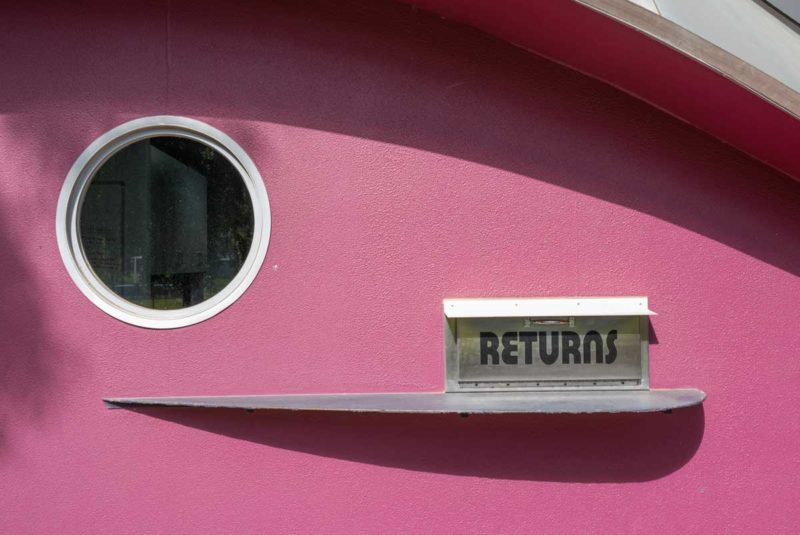Cars are expensive.
They’re expensive enough that most car buyers take out car loans to buy them.
But there are debt-averse buyers with deep pockets who prefer to pay for their cars with cash so they own them from the get-go.
Somewhere between the traditional car loan takers and the all-cash crew are the buyers who use their credit cards to buy a car.
Yes, you can buy a car with a credit card. But is it a savvy money move or will it drive you into debt? The answer to that question will depend on your credit and your financial health.
Can You Buy a Car With a Credit Card?
The short answer is yes.
But not every dealer takes credit cards. Even when a dealer does accept credit cards, it’ll likely depend on the car’s sticker price, among other things.
Some car dealers won’t accept credit cards
It may not seem logical to reject a customer who’s got enough money to buy a car – even if all the money is on a credit card – because money is money, right?
Well, the reality is a bit more complex.
Like any merchant who accepts credit or debit card payments, car dealers must pay processing fees for credit card transactions. The fee typically hovers between 1.5% and 3% of the transaction amount. With cars priced in the thousands of dollars, the processing fee could cost a dealer a few hundred dollars they wouldn’t have paid if they had accepted another form of payment. (FYI: Like most businesses, dealers probably factor transaction fees into their pricing).
If a sales rep knows they can sell the car you want to another buyer who isn’t planning to use a credit card, you’ll likely walk instead of drive away from the dealership.
Some car dealers will accept credit cards
But all hope is not lost! Some dealerships do accept credit cards – but there may be conditions.
Dealerships that accept credit cards for the entire purchase price may specialize in selling used cars, where profit margins are typically much higher and overall prices tend to be lower.
Some dealers only accept credit cards for a portion of a car’s price, but there are no hard-and-fast rules. Regardless of whether a dealer lets you put the entire purchase or a portion of it on your credit card, you’ll only be able to spend up to your credit limit.
Can you use a credit card for a car loan down payment?
Whether a dealership lets you pay for a car with a credit card depends on the dealership’s policies.
And the same goes for down payments. Some dealerships will let you pay the down payment on your car loan (or a portion of the down payment) with a credit card – even if they won’t allow you to use a card to pay for the entire purchase price.
If you’re not sure what a dealership’s policy is on credit cards, talk to a dealer. But only talk to a dealer after you’ve negotiated a price you like for the car. Otherwise, the dealer might be less helpful once they realize you want to buy with plastic.
Is It a Good Idea To Buy a Car With a Credit Card?
Sure, you can buy a car with a credit card. But is it a good idea? The benefits of using a credit card to buy a car will depend on your finances and how you manage debt. Before you take your credit card out of your wallet, make sure you understand the impact this purchase could potentially have on your credit and finances.
Credit utilization ratio
Your credit utilization ratio is the amount of credit you’re using compared to the total amount of credit you have available. If you have a credit limit of $1,000 and you use $500 of that, your credit utilization ratio would be 50%.
A big-ticket item, like a car, can drastically increase your credit utilization. And because your credit utilization (aka amounts owed) makes up 30% of your FICO® credit score,[1] a high credit utilization ratio can negatively impact it.
If you plan on buying a car with a credit card and want to avoid jacking up your credit utilization, it’s best to pay off the entire purchase before your statement due date, which is when your card company reports your card balance to the credit bureaus.
High interest rates
Credit card companies typically charge much higher interest rates than auto loan or mortgage lenders. If you can’t pay off your credit card balance after buying a car, you could end up spending a lot more in interest than you would have if you’d opted for a car loan.
And here’s something else to consider: Credit card interest rates – and, therefore, your monthly payments – aren’t fixed. If long-term affordability is the name of the game for you, car loans have fixed interest rates, which means fixed monthly payments. And the interest rates on car loans are usually lower than the interest rates on credit cards.
Rewards potential
You can earn thousands of rewards points, airline miles or cash back when you make a big purchase on a credit card.
Paying off your credit card balance soon after (or right after) your purchase is key to squeezing out the most benefits from your rewards. If you can’t pay your balance off quickly, the interest charges will pile up and will likely outweigh any benefit you’d earn from rewards.
Can You Buy a Car With a Debit Card?
While debit cards tend to operate on the same networks as most credit cards, they work quite differently.
As far as a car dealership is concerned, debit and credit cards offer similar advantages and disadvantages. For instance, both cards require dealers to pay transaction fees.
Debit card processing fees are typically a bit lower than credit card processing fees. If a dealership accepts credit cards, it probably accepts debit cards, too. But you’ll need to contact the dealership to confirm.
FYI: Many debit cards have daily spending limits that are much lower than a credit card’s credit limit. You should contact your bank in advance before making a big purchase with your debit card. Just note that your bank may not be willing to increase your spending limit to cover the cost of a car.
The upside of using a debit card is that the cash comes straight from your bank account, and you’ll never have to worry about paying interest. If you’re determined to buy a car with a card but don’t have an introductory 0% APR offer to take advantage of (more on this later), using a debit card could be a savvy money move.
When Should You Buy a Car With a Credit Card?
Honestly, most of us should probably avoid using a credit card to buy a car. Credit cards have high interest rates and fees. If you can’t pay the car off quickly enough, those fees could make your purchase unaffordable and damage your credit score.
But if you’re a whiz at racking up credit card rewards and you’ve got a plan to pay off the car sooner rather than later, you could essentially earn while you spend.
You have the cash to pay your balance in full
If you have enough money to buy a car, just use cash. But if you can’t bear to leave any rewards on the table, you could use your credit card and then immediately turn around and pay the entire balance. You’ll likely earn thousands of rewards points and never pay a penny in interest.
You plan to use a 0% intro APR offer
If you’re not ready to tackle paying off the entire balance of a car right away, use a credit card with a 0% intro APR offer.
You can pay off the balance over the introductory period without having to deal with interest fees. To figure out the monthly payment you’ll have to make to pay off the balance before the offer ends, divide the balance by the number of months that make up the intro period (usually 6 – 18 months).
Pro tip: Consider dividing the balance by one less month to make sure you pay it off on time.
If you have good-to-excellent credit, you should have no trouble finding a rewards card with a lengthy 0% intro APR. If you’re determined to use a specific rewards card that doesn’t have an introductory APR offer on purchases, you can use that card, then transfer the balance to a card with a long 0% balance transfer APR period and no annual fee.
There are a few important points to consider before heading down this route.
First, credit card companies usually charge a fee for balance transfers, which could negate the rewards you’re trying to earn in the first place. You can avoid this fee or offset its negative impact by:
- Sticking with a credit card that has a 0% APR offer on purchases. If that doesn’t work, try to find a balance transfer card with no transfer fee. Just note that fee-free balance transfers are usually offered for a limited time after you’re approved.
- Negotiating a price for the car that takes the balance transfer fee into account.
If you’re not sure that you’ll be able to pay for the car before an intro APR period ends, you’re probably better off not using a credit card.
You could keep transferring your balance to other 0% APR cards. Unless you found a card that has no balance transfer fees, you’d be dealing with transfer fees every time you transferred the balance. That strategy could get expensive in the long run.
If you’re still intrigued by this approach, compare how much you’d spend on several balance transfers to the amount of interest you’d be paying on an auto loan. It might be worth it if you’d end up paying less in transfer fees than in loan interest.
Be aware that there’s never any guarantee that you’ll be approved for another credit card. Strong credit scores should help increase your approval odds. But, even with top-notch credit, you can’t be certain.
You can use a business card
You may be able to avoid damaging your personal credit by using a business credit card to buy a car. The activity on business credit cards is only reported to business credit bureaus unless the account is delinquent.
But, charging nonbusiness expenses on business cards is technically against the terms of most credit card issuers. You may only want to consider this if you’re using the car for your business.
How Do You Buy a Car With a Credit Card?
Buying a car with a credit card is a bit trickier than using traditional financing, but it is possible. And, under the right circumstances, it can be quite valuable.
There are a few steps you should take to streamline the process.
Before you buy
Take stock of your financial situation
To buy a car with a credit card, you’ll need a high enough credit limit so you can charge the full price of a car. (FYI: For some credit cards, you’ll need to confirm if there’s a daily spending limit.)
Credit limits usually depend on your income, credit scores and total debt. Your limit may also depend on how long you’ve had your credit card. Talk to your card company to see if you’re eligible for a credit limit increase.
If your available credit limit isn’t high enough and you don’t need the car, like, yesterday, spend some time building your credit scores and then request a limit increase from your credit card issuer.
If you can buy a car on your credit card, consider contacting your issuer to inform them of the upcoming purchase. An unusually large purchase could trip fraud protection measures, and the transaction might be declined.
Research the car you’re buying
We know this advice is a touch obvious, but we have to say it because it’s so important. Don’t charge into a sale without researching the prices you can expect for the car you want.
The more you know, the better equipped you are to negotiate.
Ask your dealer about credit cards after you’ve negotiated a price
You can always research whether a dealership accepts credit cards, but you shouldn’t reveal your plan on using one until you’ve settled on a price. If you let a dealer know you want to use a card before you settle on a price, the dealer may consider this during the negotiations or prevent you from buying the car.
When you’re buying
Use the credit card with the best rewards
When paying for the car, use the credit card that offers the most value.
Let’s say you’re planning a trip. You may want to charge the purchase to a co-branded airline card that earns rewards on travel. If you just applied for a new credit card with a big sign-up bonus, you can use the card to buy a car and knock out the spending requirement.
Flat-rate rewards cards are another option. They can offer 1.5% or 2% back for every purchase and often provide 0% APR offers on purchases, which would keep you from having to transfer your balance and pay a balance transfer fee.
Make monthly payments with a 0% purchase APR
To figure out the monthly payment you’ll need to make to pay off your balance before the interest-free period expires, divide the cost of the car by the number of months that make up the intro period. Once you know what your monthly payments will be, you can set up automatic payments.
If you still have a balance after your intro period ends, consider transferring the leftover balance to another card with a 0% balance transfer offer.
Pay off or transfer the balance without a 0% purchase APR immediately
If you charge the car to a credit card that doesn’t have a 0% purchase rate, act fast to avoid interest charges.
Your first option is simple: Pay off the balance in full.
Your second option is to transfer the balance to a card with a 0% APR offer. If this is your option of choice, make sure to factor the balance transfer fee into the negotiated price of the car.
What Are Some Alternatives to Buying a Car With a Credit Card?
Before you whip out your card to buy a car, consider these alternatives:
- Cash: A lot of stars need to align to make using a credit card to buy a car a savvy money move. Cash doesn’t come with the drawbacks of high interest rates and fees. In fact, using cash may coax you to buy a car that’s more within your budget and likely more affordable in the long term. Even if you can’t buy a car with cash, putting cash down on a car and then financing it can help you get better loan terms.
- A trade-in: Trading in your old car can be a great way to knock some money off the purchase price of your new car. You can use the trade-in amount for a down payment. Use the Kelley Blue Book tool to get an idea of your car’s trade-in value.
- Financing: Getting a car loan can be a great option if you don’t have the cash to either pay for your car or pay off the credit card you use to buy the car. Auto loan interest rates are usually much lower than the interest rates on credit cards, and you’ll usually get a fixed monthly loan payment.
- A co-signer: If you’re finding it hard to get favorable loan terms on your own, getting a co-signer with good credit can likely help you qualify for lower interest rates and better loan terms.
The Verdict
In the grand scheme of things, using a credit card to buy a car is just like swiping your card for any large purchase.
But you should only consider swiping your card if you have the money to pay off the balance immediately or you have a plan to pay off the balance without incurring interest charges or damaging your credit scores.
So, yeah. It’s not the right option for everyone. But it can be done.
The Short Version
- Whether a dealership lets you pay for a car with a credit card depends on the dealership’s policies
- Some dealerships will let you pay the down payment on your car loan (or a portion of the down payment) with a credit card
- Regardless of whether a dealer lets you put the entire purchase or a portion of it on your credit card, you’ll only be able to spend up to your credit limit
myFICO®. “What’s in my FICO® Scores?” Retrieved April 2022 from https://www.myfico.com/credit-education/whats-in-your-credit-score




